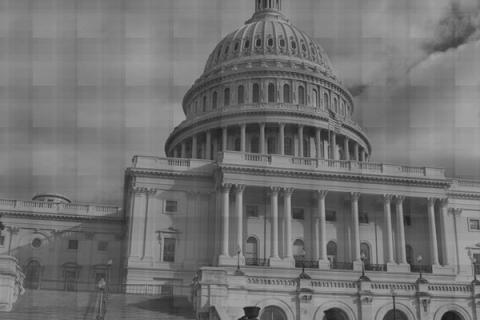The United States has a long history of going ahead with presidential elections. The presidential election of 1812 was conducted even though war had just been declared against the Brits. Incumbent President James Madison beat out challenger DeWitt Clinton (no relation).
Voting for members of the House of Representatives in 1814 continued even as the British were burning down the White House! As this election was prior to ratification of the seventeenth amendment, Senators were chosen by State legislatures.
In 1864, Abraham Lincoln was re-elected president in the midst of the Civil War. No electoral votes were counted from any of the eleven Southern states. Lincoln, a Republican, ran against the general he had fired for timidity, Democratic candidate George B. McClellan; in a sense, beating him twice.
In 1944, President Franklin D. Roosevelt was elected to his fourth term in the midst of WWII. He beat Governor of New York Thomas E. Dewey.
The US Constitution, Article 1, Section 4 gives the states authority to administer all elections, including federal elections. Of course, Article 2 and the 12th Amendment require the state legislatures to decide how electors will be chosen for the Electoral College. Congress requires by law that Election Day for electors be in early November. But if the election absolutely cannot be held that day, “the electors may be appointed on a subsequent day in such a manner as the legislature of such State may direct.”
So, while its possible and legal, elections shouldn’t be postponed for light and transient reasons. Lest history judge us as less hardy than our ancestors, we should take courage from the old Post Office motto: "Not wind, rain, sleet, or snow can stop the mail from going through!"
Voters and election officials should remember their history, and also keep in mind what Marvin Gaye sang to Tammi Terrell in 1967:
Don't you know that there ain't no mountain high enough
Ain't no valley low enough, ain't no river wide enough
To keep me from getting to you, baby.

